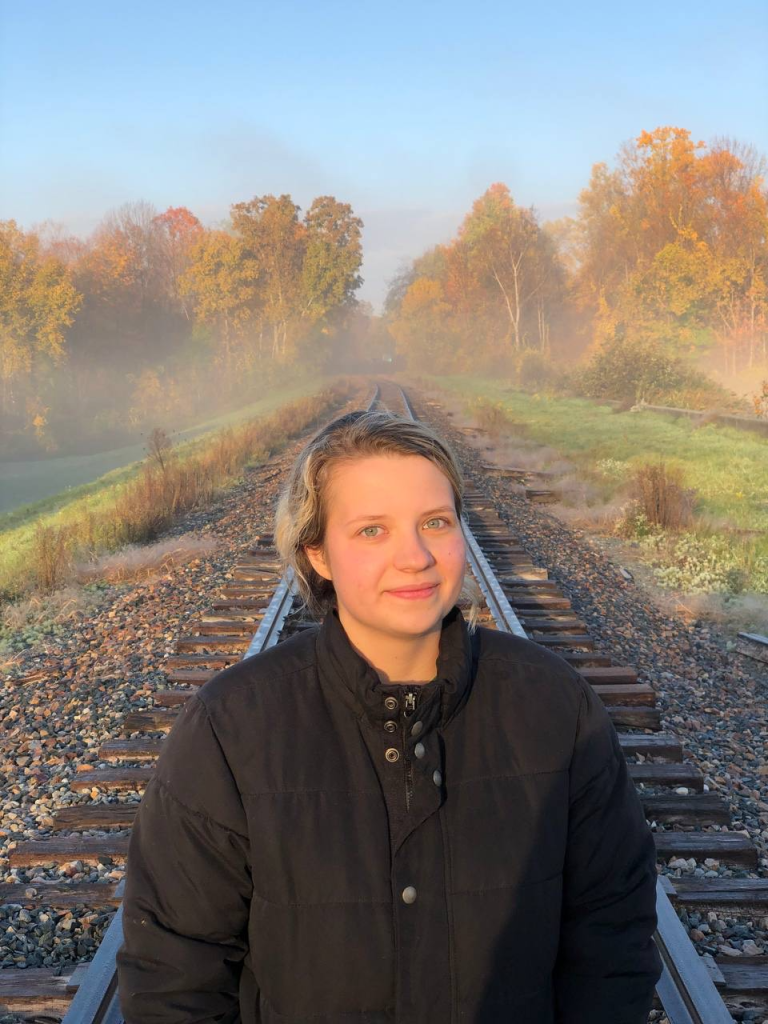By Veronika Kostyaeva
Hello everyone, my name is Veronika Kostyaeva and I’m an international student at Bennington College. Currently, I work as an intern at Art Spark Texas.
It’s been a year since I moved to the USA and started attending university here. I didn’t experience any cultural shock after moving to America, even though for most of my life I have lived and socialized in Russia. However, one thing really stood out for me, and later on, I’ve realized that if something is invisible – people tend to overlook it and not bother themselves in general. Right now I’m talking about inclusive society and availability of the resources for people with mental and physical disabilities. Unfortunately, in my home country, people with any sort of disabilities are overlooked by the government and the general public. I don’t remember seeing many wheelchair users throughout my school years nor noticing anyone who would openly share about their mental or physical disability during community activities or big celebrations.
As an international student, I was drawn to multicultural communities and wanted to be a part of something bigger than just myself or my nation. Fortunately, there has always been a comfort “bubble” surrounding me, where I would see and meet up with people representing minorities in our society: LGBTQ+, people of color, immigrants, etc. Nonetheless, my direct interactions with individuals with disabilities were pretty non-existent, aside from knowing a couple of friends, who were on the autistic spectrum or neurodivergent. The first time I arrived at Bennington, Vermont and went on the campus tour, I was astonished by the inclusivity and accessibility at the college. All the doors were equipped with an automatic system for wheelchair access and there were elevators in the main building for the exact same purpose. After a couple of weeks in, I got used to seeing someone using a cane or wearing big headphones with noise cancellation in a classroom. Then I started wondering and asking myself – why have I never had anyone with a visual impairment in my class back home? Why have I rarely seen an individual in a wheelchair, or with a cane, outside, unless it was an extremely old person? Where are all these people that obviously exist but we don’t see them?
The realization of an exclusive and pretty demanding community was harsh. Unless you are an able-bodied person with more or less stable mental health – you are not welcome to appear anywhere in the public eye. Creating an image of a country with a “strong and normal” population to display certain qualities to the rest of the world was never healthy for its inhabitants. I wish that people back home would notice each other first, rather than paying attention to the physical characteristics of one’s body or their way of thinking and feeling.
I’m aware that there are organizations and NPOs in Russia that work with people with disabilities and are constantly trying to create welcoming and inclusive environments for everyone. Yet, their number is pretty small, and in everyday life we still overlook members of this big community. I’m blue but hopeful for the future, as there are many examples in front of me right now, where everyone (no matter if you are able-bodied or disabled) can have free access to education, healthcare and simply live their life to the fullest.

Veronika Kostyaeva (she/her) is a sophomore at Bennington College, where she studies social sciences, in particular Psychology, Political Science and Philosophy. She has been involved with volunteering and working for various NPOs in Russia, Costa Rica and the USA. Currently, she is interested in being involved in community service activities and learning more about the world and people in it. For her internship, she will be working on researching and creating a list of disability arts organizations in Texas, expanding the media contact list and helping create a marketing plan for Art Spark Texas’ annual Artist of the Year event. She has a lovely senior cat back home and is considering adopting one in the States as well.

Hi Veronika,
Such a lovely sentiment. Thank you for sharing your thoughts on the invisibility of people with disabilities in Russia, and I wish you well in your efforts to make the world a more inclusive, welcoming place.
Celia